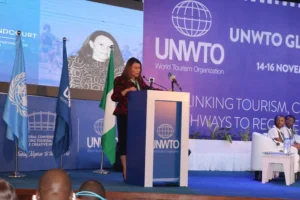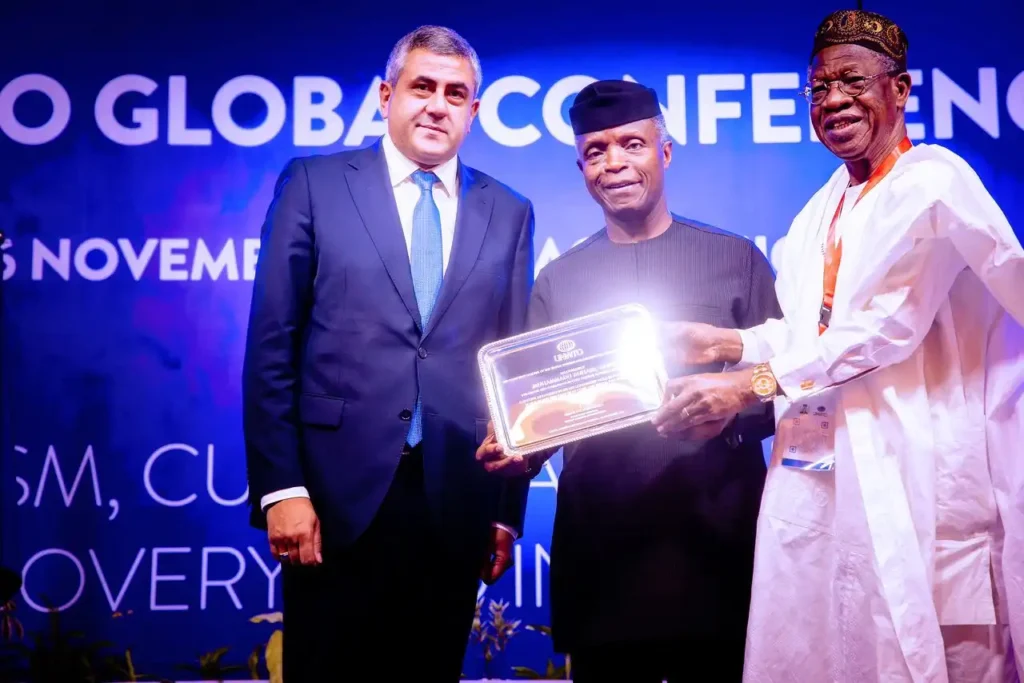In a major step toward transforming Nigeria’s tourism sector, the Federal Government—through the Ministry of Information and Culture—has formally partnered with the United Nations World Tourism Organization (UNWTO) to support the rollout of the National Tourism Development Master Plan. This collaboration, reaffirmed at the Fourth Tourism Investors Forum and Exhibition in Abuja, underscores Nigeria’s commitment to building a robust and sustainable tourism ecosystem for the next one and a half decades.
Establishing a Reliable National Tourism Data System
A central aim of the UNWTO partnership is to address Nigeria’s historic gap in tourism data. Together, the government and UN agency will work to strengthen the national tourism statistical system and develop a Tourism Satellite Account, enabling accurate measurement of tourist arrivals, expenditures, and economic impact—a critical move for evidence-based policy and investment decisions.
Creating a Multi-Stakeholder Consultative Platform
To guide implementation, the government will launch a National Consultative Forum composed of public officials, private sector representatives—including the Federation of Tourism Associations of Nigeria (FTAN)—and UNWTO advisors. This body will review technical reports, align strategies, and ensure that stakeholders collectively advance the Master Plan’s vision.

Public–Private Partnerships and Investment Incentives
The Ministry emphasized the role of private investment in bringing the Master Plan to life. To foster this, the partnership includes a framework for public–private partnerships (PPPs), along with incentives such as:
-
Up to three years of tax exemptions
-
Export/import incentives
-
Access to concessionary land rates
-
Fast-tracked work permits for skilled foreign professionals
These measures aim to attract local and international stakeholders to invest in tourism infrastructure and services across Nigeria.
Promoting Sustainable, Culture-Based Tourism Development
By aligning with UNWTO’s global priorities, Nigeria’s Master Plan seeks to integrate cultural heritage, ecology, and creative industries into its tourism strategy. Notably, a UNWTO Global Conference held in Lagos on 18 November 2022 highlighted the synergy between tourism and culture—with around 40% of all tourists citing culture as their primary travel motivation. The event also underscored youth empowerment, creative entrepreneurship, and gastronomy as levers of sustainable tourism growth.
Template for State-Level Tourism Planning: Ekiti as a Pilot
Ekiti State has emerged as a model for the federal partnership. In July 2024, the state government announced collaboration with UNWTO to draft a state-specific tourism master plan. A UNWTO delegation was scheduled to visit Ekiti in mid‑August 2024 to kickstart formal planning sessions. This marks the first time UNWTO has formally partnered with a Nigerian state to implement location-specific tourism strategies.
Tourism’s Economic Promise and National Ambitions
Tourism offers vast economic potential—from job creation in hospitality and transport to foreign exchange earnings and investment in creative sectors. However, as recent reports have noted, Nigeria lags behind peers like South Africa and Kenya, recording just 1.2 million international visitors in 2023, amid infrastructural, security, and marketing weaknesses.
Nigeria’s strategy—including its “Tour Nigeria” brand launched in 2017, based on the CHIEF framework (Corporate governance, Human capital, Infrastructure, Events & marketing, Finance & investment)—aligns with the UNWTO partnership to address these structural concerns and boost domestic tourism awareness and reach.
Looking Ahead: Implementation Roadmap and Expectations
As Nigeria begins operationalising the Master Plan:
-
The UNWTO will assist with technical support, data systems, and stakeholder training.
-
Federal and state authorities are expected to mobilize resources through grants, private investors, and development partners.
-
Tourism bodies across the country will be encouraged to develop destination packages that integrate conservation, culture, cuisine, and community.
-
Local youth and MSMEs will be engaged through capacity building and tourism-linked entrepreneurship initiatives, ensuring inclusive growth.
Why This Partnership Matters
This UNWTO collaboration signals Nigeria’s readiness to mainstream tourism as a driver of economic diversification, cultural preservation, and sustainable development. With clear objectives—from improved data to structured investment frameworks—and by piloting at the state level, Nigeria is laying the groundwork for a coordinated, long-term tourism transformation.
By aligning national vision and international best practices, this venture positions Nigeria to unlock its full tourism potential, benefiting communities, businesses, and the nation at large. Interested in a formatted executive summary or state-level versions? I’d be glad to assist further.







